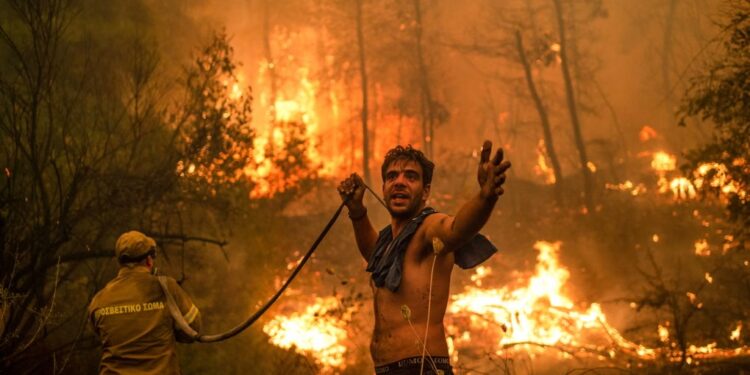A new report has warned that accelerating environmental damage is putting the European way of life at risk, with climate change, biodiversity loss, and pollution identified as the most urgent challenges facing the continent. The findings suggest that without decisive action, Europe could see severe disruptions to its economy, health systems, and cultural traditions.
Climate change and extreme weather
The report highlights the rapid escalation of climate impacts across Europe, noting rising temperatures, intensifying heatwaves, and more frequent floods. Southern and central regions are particularly vulnerable to drought, while northern areas face increased risks from coastal flooding and shifting ecosystems. Analysts warn that these events are no longer distant scenarios but realities already placing stress on agriculture, energy supply, and public health.
Biodiversity under pressure
Scientists emphasise that Europe’s biodiversity continues to decline at an alarming rate, with pollinators, fish populations, and forest ecosystems all under severe pressure. The loss of natural resilience, the report argues, undermines food security and exposes communities to heightened disaster risks. Traditional rural livelihoods and landscapes, central to Europe’s cultural heritage, are increasingly endangered by soil degradation, habitat loss, and intensive land use.
Pollution and urban threats
The report also identifies air and water pollution as persistent threats to European citizens. Poor air quality is estimated to cause hundreds of thousands of premature deaths annually, while chemical contaminants in rivers and seas affect both human health and marine life. Urban populations, already facing rising living costs and housing challenges, are particularly exposed to these environmental hazards, deepening concerns about long-term quality of life.
Policy choices and the road ahead
European policymakers are urged to strengthen climate commitments, expand renewable energy, and invest in sustainable farming and urban design. While the European Green Deal provides a framework, experts stress that implementation remains uneven across member states. Without stronger collective action, the report concludes, environmental decline could erode the social and cultural fabric that underpins the European way of life.
Balancing urgency with opportunity
The report also highlights opportunities for innovation and resilience. Expanding clean energy infrastructure, restoring ecosystems, and promoting circular economic models could not only mitigate risks but also create jobs and drive competitiveness. However, time is seen as a critical factor, with experts warning that delays will sharply increase both costs and risks.
Newshub Editorial in Europe – 29 September 2025



Recent Comments